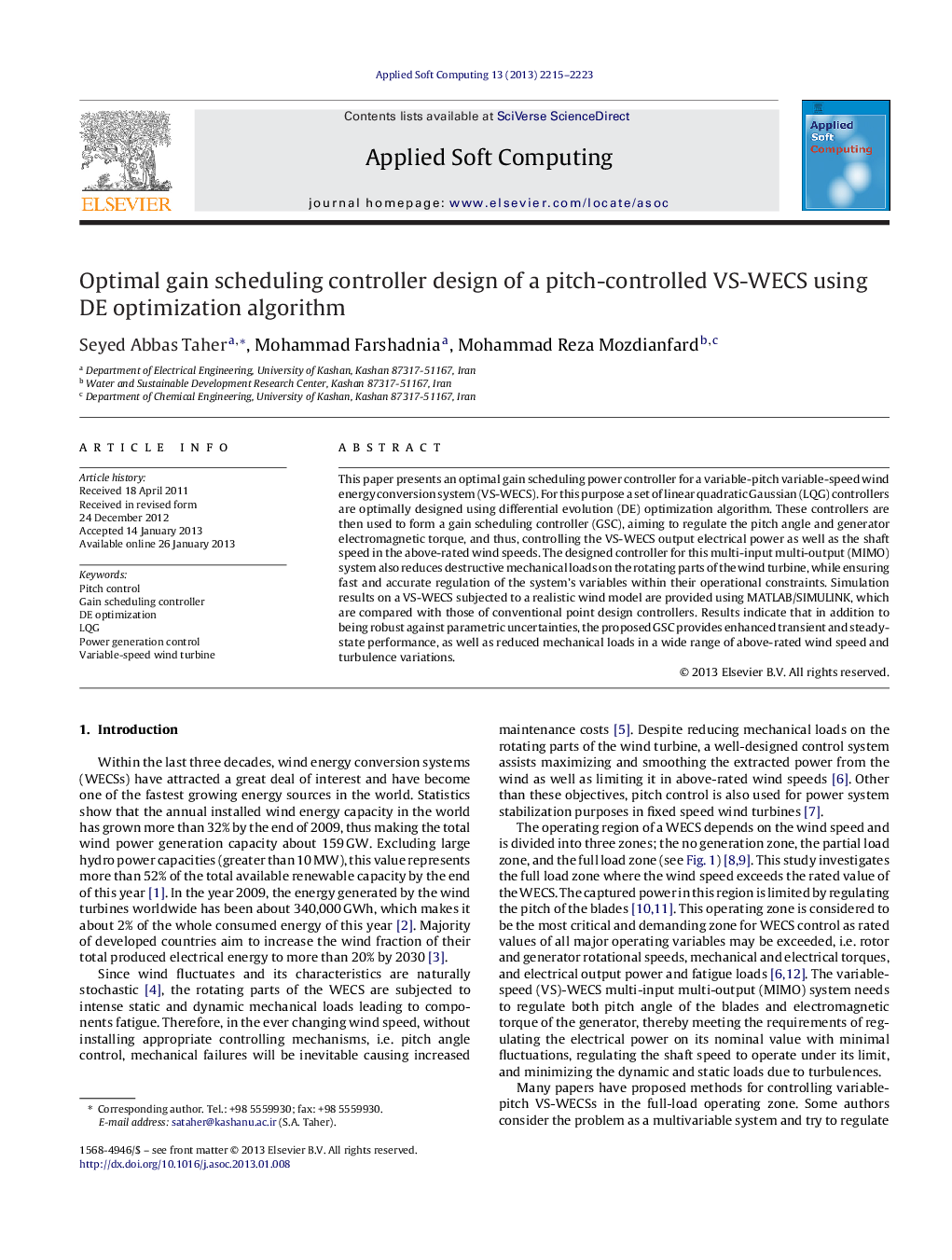| Article ID | Journal | Published Year | Pages | File Type |
|---|---|---|---|---|
| 495919 | Applied Soft Computing | 2013 | 9 Pages |
This paper presents an optimal gain scheduling power controller for a variable-pitch variable-speed wind energy conversion system (VS-WECS). For this purpose a set of linear quadratic Gaussian (LQG) controllers are optimally designed using differential evolution (DE) optimization algorithm. These controllers are then used to form a gain scheduling controller (GSC), aiming to regulate the pitch angle and generator electromagnetic torque, and thus, controlling the VS-WECS output electrical power as well as the shaft speed in the above-rated wind speeds. The designed controller for this multi-input multi-output (MIMO) system also reduces destructive mechanical loads on the rotating parts of the wind turbine, while ensuring fast and accurate regulation of the system's variables within their operational constraints. Simulation results on a VS-WECS subjected to a realistic wind model are provided using MATLAB/SIMULINK, which are compared with those of conventional point design controllers. Results indicate that in addition to being robust against parametric uncertainties, the proposed GSC provides enhanced transient and steady-state performance, as well as reduced mechanical loads in a wide range of above-rated wind speed and turbulence variations.
Graphical abstractFigure optionsDownload full-size imageDownload as PowerPoint slideHighlights► A gain scheduling controller (GSC) was designed for a variable-speed wind turbine. ► The study aims to regulate generator torque and pitch angle in above-rated wind speeds. ► The proposed GSC consists of a set of optimized LQG controllers, further tuned by DE optimization algorithm. ► The proposed GSC is found to be fast and robust, capable of reducing mechanical loads on the rotating parts.
